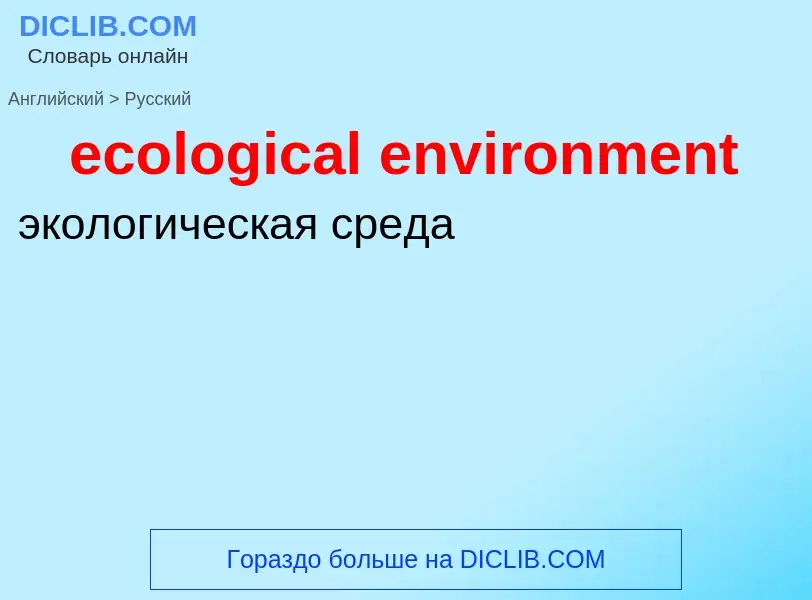Перевод и анализ слов искусственным интеллектом ChatGPT
На этой странице Вы можете получить подробный анализ слова или словосочетания, произведенный с помощью лучшей на сегодняшний день технологии искусственного интеллекта:
- как употребляется слово
- частота употребления
- используется оно чаще в устной или письменной речи
- варианты перевода слова
- примеры употребления (несколько фраз с переводом)
- этимология
ecological environment - перевод на русский
общая лексика
физическая среда
физическая среда, условия работы (компьютера)
температура, влажность, давление (высота над уровнем моря), вибрация, излучения и т.д.
Википедия
Ecological anthropology is a sub-field of anthropology and is defined as the "study of cultural adaptations to environments". The sub-field is also defined as, "the study of relationships between a population of humans and their biophysical environment". The focus of its research concerns "how cultural beliefs and practices helped human populations adapt to their environments, and how people used elements of their culture to maintain their ecosystems". Ecological anthropology developed from the approach of cultural ecology, and it provided a conceptual framework more suitable for scientific inquiry than the cultural ecology approach. Research pursued under this approach aims to study a wide range of human responses to environmental problems.
Ecological anthropologist, Conrad Kottak published arguing there is an original older 'functionalist', apolitical style ecological anthropology and, as of the time of writing in 1999, a 'new ecological anthropology' was emerging and being recommended consisting of a more complex intersecting global, national, regional and local systems style or approach.




